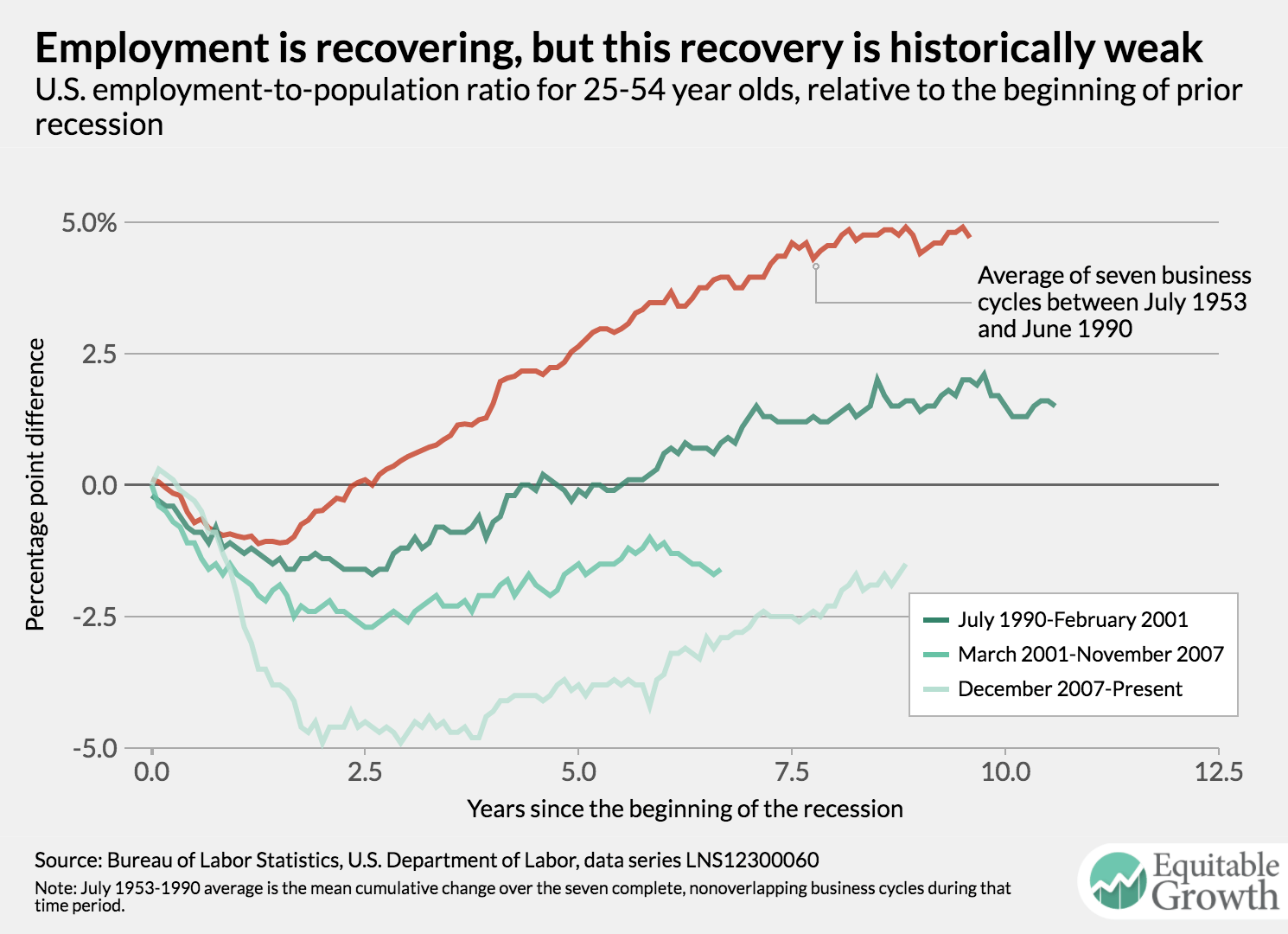Weekend reading: “Delivering equitable growth” edition
This is a weekly post we publish on Fridays with links to articles that touch on economic inequality and growth. The first section is a round-up of what Equitable Growth published this week and the second is the work we’re highlighting from elsewhere. We won’t be the first to share these articles, but we hope by taking a look back at the whole week, we can put them in context.
Equitable Growth round-up
Recessions happen. But how often and why? The length of the current U.S economic expansion has some worried that a recession is imminent. Yet looking around to see a potential cause of the next recession finds nothing immediately.
Equitable Growth released two new working paper this week, looking at the how unstable scheduling affects parenting and the roles of fiscal and monetary policy. City University of New York economist J.W. Mason, co-author of the second paper, writes about how the metaphor of “fiscal space” is all backwards.
Was inequality higher in the past than previously thought? A new research paper looks at how the shift in business income away from corporations and toward so called pass-through entities in the United States can affect our measures of income inequality over time.
Employers in the United States seem to be increasing the skill requirements for their job postings. Is a slack labor market behind this upskilling? Or is it a longer term trend accelerated by the recession?
In the latest Equitable Growth in Conversation, Heather Boushey talks to Stefano Scarpetta of the Organisation for Economic Co-operation and Development about how high levels of inequality may be affecting economic growth among advanced and emerging economies.
In new research on the tax increase on high-income Americans in 2013, University of California-Berkeley economist Emmanuel Saez finds evidence that the increases were an efficient way to raise revenue without harming economic growth.
Links from around the web
Wage growth is picking up in the U.S. labor market, but it’s not as strong as many might hope. What’s pushing down on wage growth? The chairman of the president’s Council of Economic Advisers, Jason Furman, and Princeton University economist Alan Krueger point to increasing monopsony power. [wsj]
In the aftermath of the Great Recession, economists had a debate about how much of the rise in U.S. unemployment was due structural increases versus a cyclical downswing. While that debate continues, American University’s Zidong An and Prakash Loungani at the International Monetary Fund argue those arguing for the cyclical case won the battle of 2010 to 2016. [econbrowser]
Gross domestic product growth has been tepid since the Great Recession. But maybe this low growth future isn’t something to be alarmed about? Alana Semuels writes about the possibility of focusing on something besides GDP growth. [the atlantic]
Policies such as paid sick leave are often thought of as only being a cost to employers and society. But the program also has benefits and not offering paid sick leave can have its own costs, Austin Frakt writes. [the upshot]
Want more entrepreneurs? Some people might tell you that encouraging risk taking is about increasing the upside gains. But it may also require limiting downside risks and a stronger safety net as Noah Smith argues. [bloomberg view]
Friday Figure

Figure from “Equitable Growth’s Jobs Day Graphics: October 2016 Report Edition”

